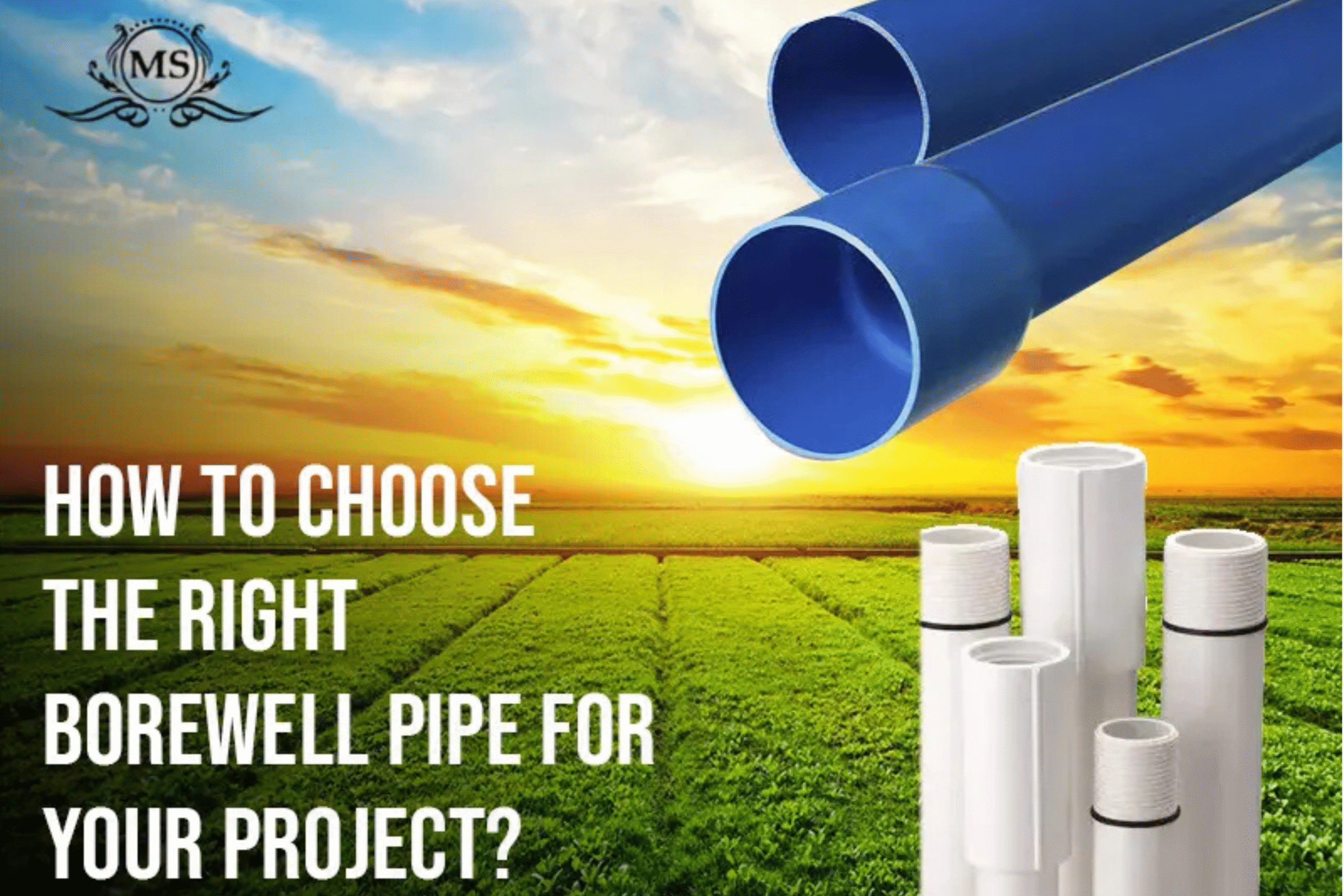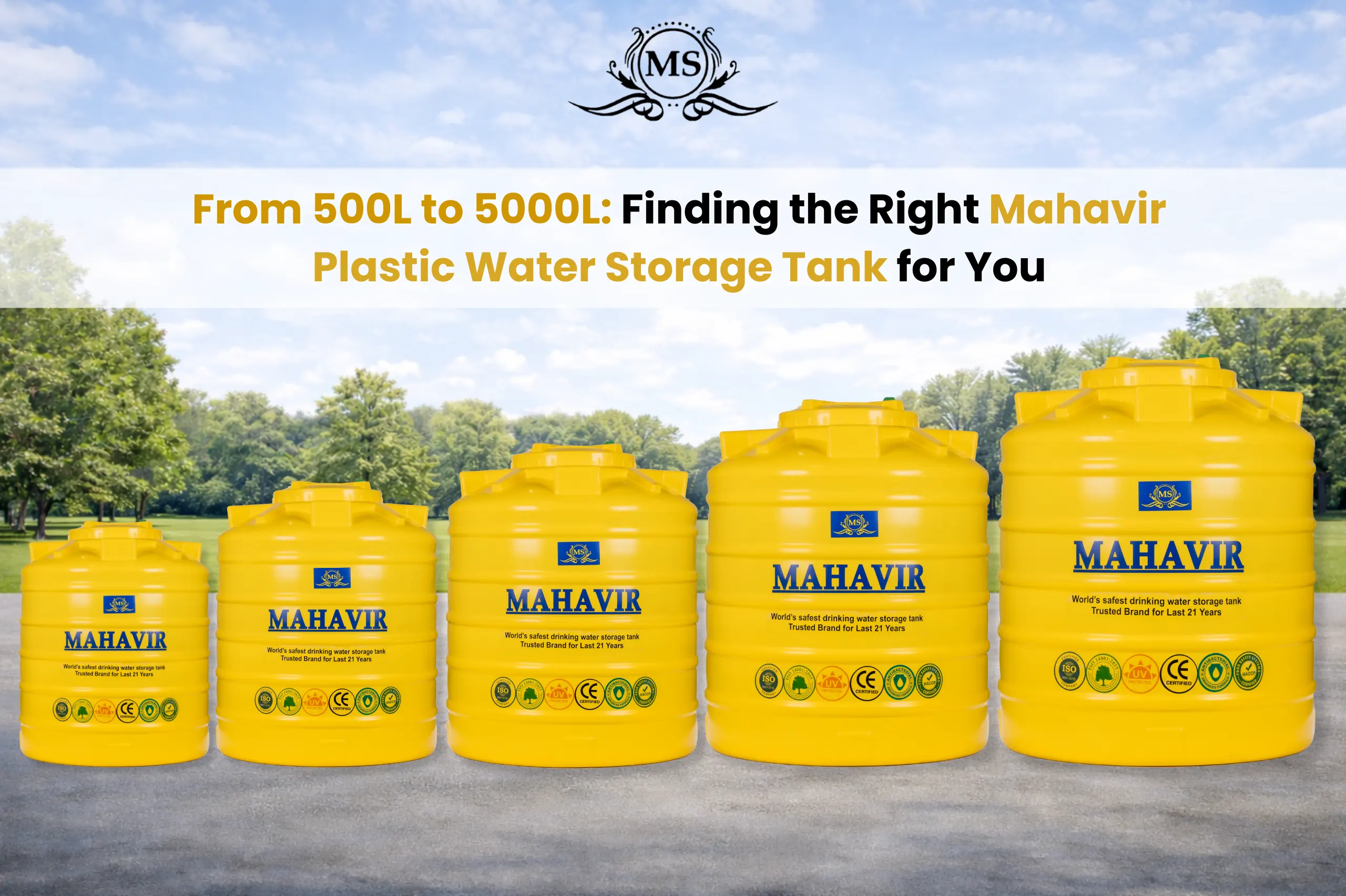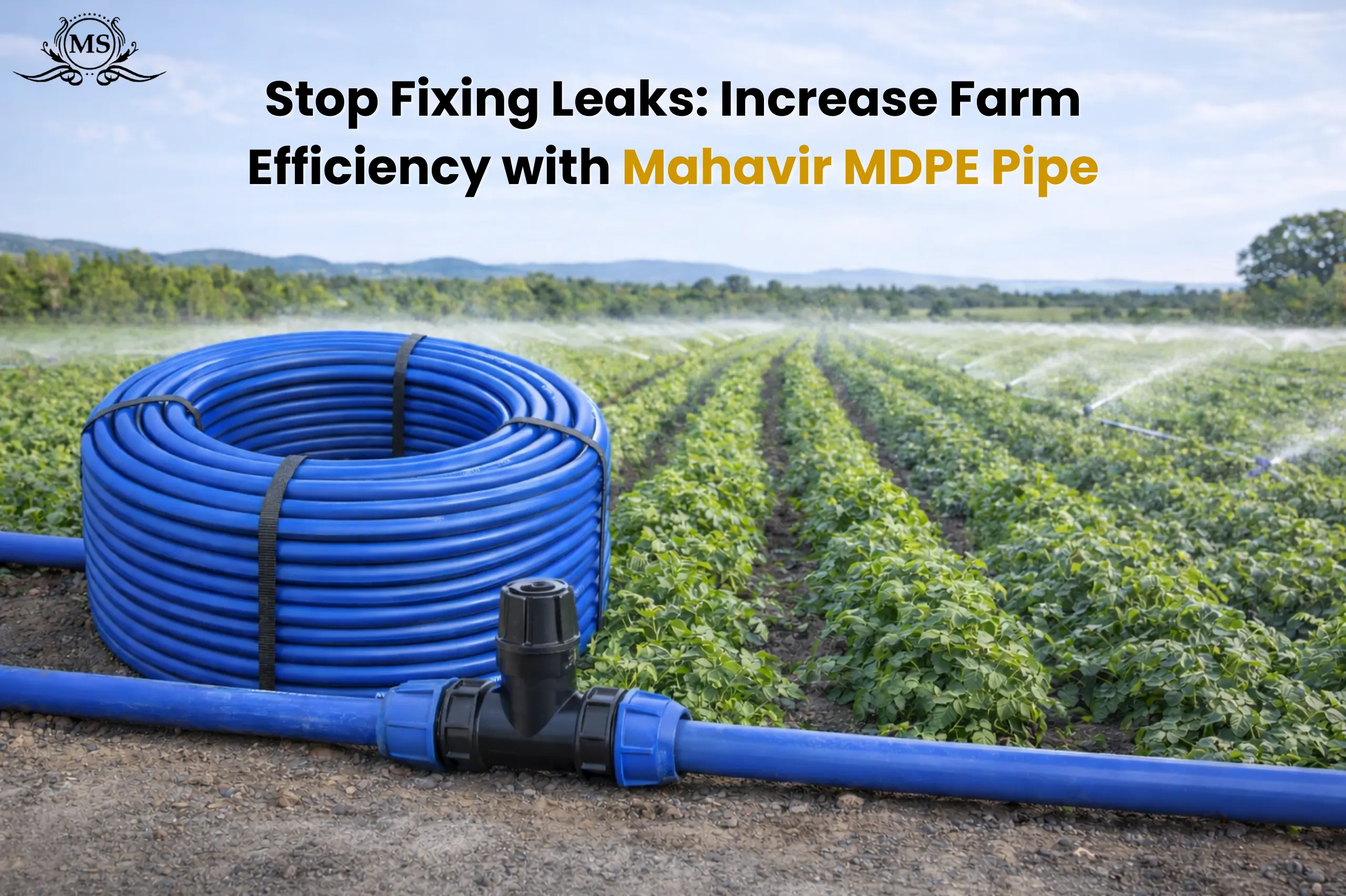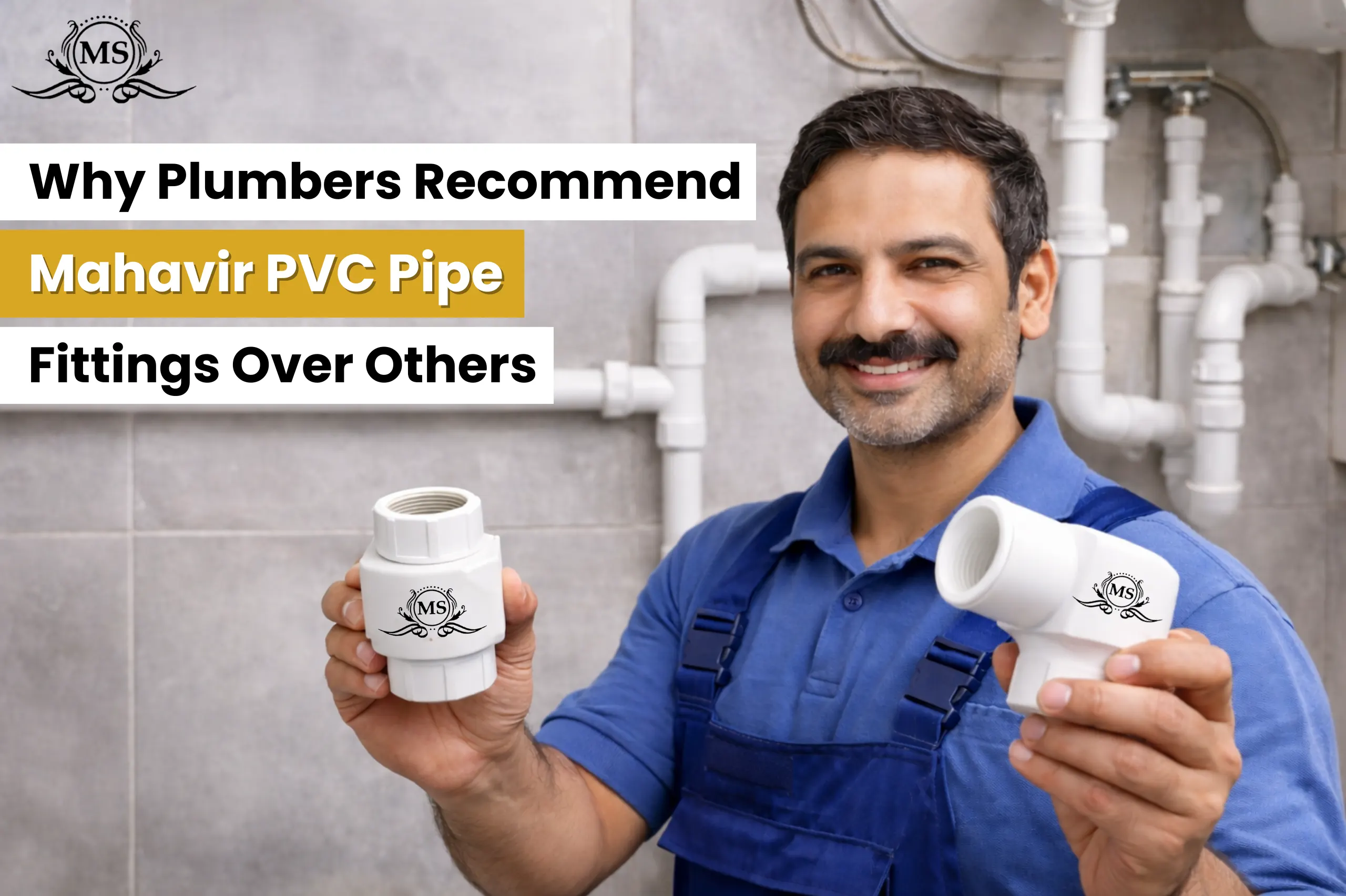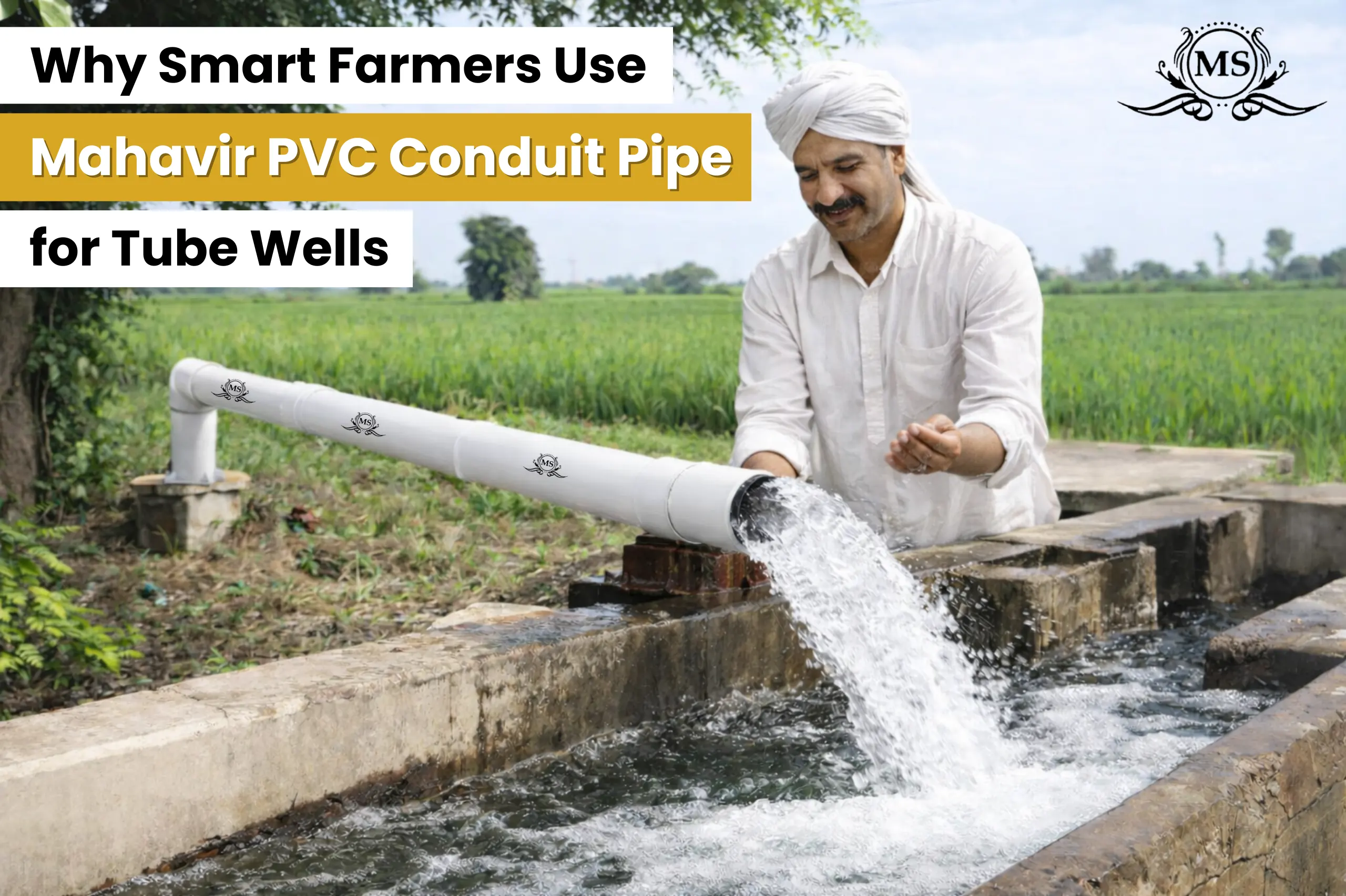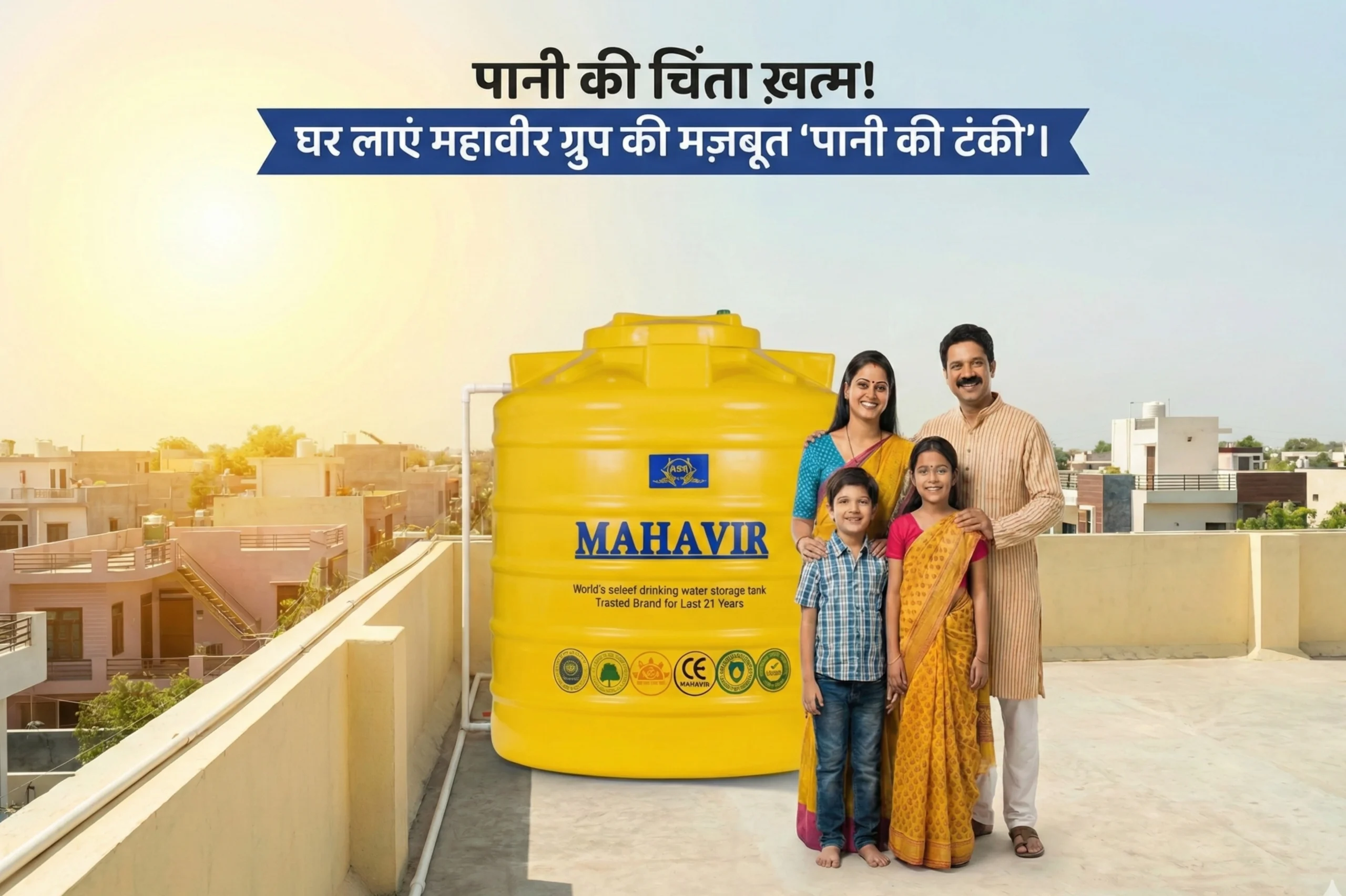Selecting the appropriate Borewell Pipe is essential for the success of any project involving boring operations, such as utility installations, infrastructure development, or irrigation systems.
The right boring pipe ensures optimal efficiency, enhances safety, and extends the lifespan of the installation.
This blog will explore in detail the essential factors to consider when choosing the best boring pipe, including material options, durability, and specific applications for different projects.
We’ll also examine how these factors impact the overall performance and cost-effectiveness of your project, helping you make an informed decision tailored to your unique requirements.
Understanding Boring Pipes
Table of Contents
Toggle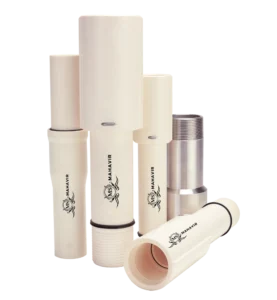
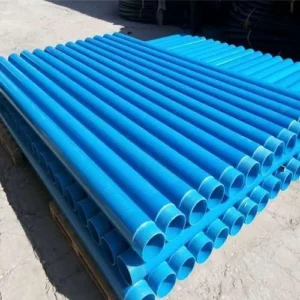
Boring technology has revolutionized how we install underground utilities, minimizing the need for invasive digging.
However, the success of this technology heavily relies on using the right type of pipe. Boring pipe comes in various material and specification options, each suited to different environmental conditions and project demands.
It’s important to choose a boring pipe that can handle the specific geological and environmental challenges of your project site, from rocky soils to high water tables.
The boring pipe must be robust enough to not deform or break under pressure, ensuring a secure pathway for utilities without future complications.
Key Considerations for Choosing the Best Boring Pipe
Material Durability
Durability of materials is essential for assuring low maintenance and long-term performance.
Steel endures high pressures in heavy-duty applications, HDPE provides flexibility and impact resistance for challenging terrain, and PVC resists corrosion in acidic soils.
Over the course of the project, durable materials provide dependability, economic effectiveness, and defense against environmental issues.
PVC
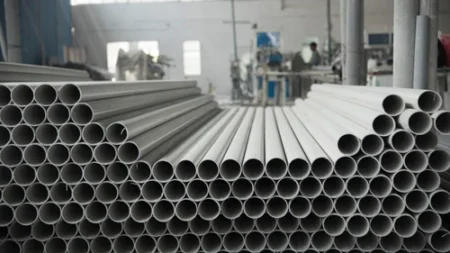
Boring PVC pipe offers excellent resistance to corrosion and chemical leaching, making it a suitable choice for soil environments that are acidic or contain high levels of minerals.
Its durability ensures a long lifespan with minimal maintenance requirements.
HDPE
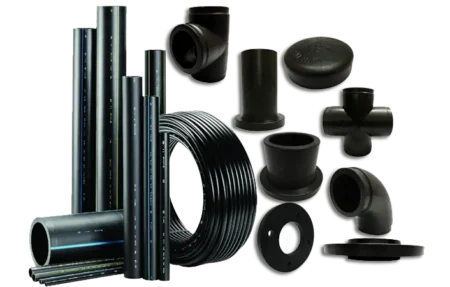
Not only is HDPE highly resistant to impact, abrasion, and corrosion, but it also offers exceptional flexibility, making it ideal for varying terrains and temperatures.
Its resilience makes it suitable for both above-ground and underground installations.
Steel
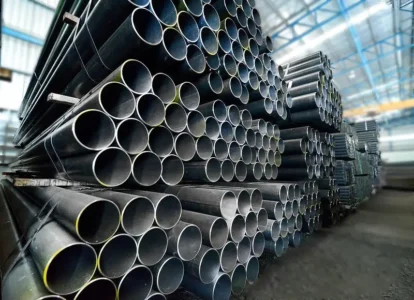
Known for its immense strength and durability, steel is perfect for high-pressure applications and areas with heavy traffic or significant environmental stress.
It can handle extreme conditions without yielding, providing a reliable solution for critical infrastructure.
Pipe Size and Wall Thickness

Ensuring the correct pipe diameter and wall thickness is of utmost importance, as it influences the pipe’s ability to withstand external pressures and internal forces from fluid flow.
The chosen dimensions must align with soil conditions, installation depth, and operational pressure demands to prevent pipe collapse or rupture.
Flexibility and Joint Integrity
HDPE pipes, known for their flexibility, are excellent for installations that require navigation around obstacles or alignment with existing piping configurations.
Their ability to bend reduces the need for additional fittings, simplifying the layout.
The strength of a piping system also lies in its joints. Technologies such as fused or flanged joints are crucial in maintaining a secure and leak-proof system.
Fusion joints create a continuous connection, reducing the risk of leaks, while flanged joints allow for easier disassembly and maintenance.
Cost Efficiency

Evaluating the long-term costs associated with installation, maintenance, and potential repairs is essential.
Initial lower costs may be appealing, but higher maintenance or frequent replacement costs can make a cheaper option more expensive over the lifetime of the project.
Considering the total cost of ownership ensures a cost-effective choice for the long term.
Environmental Impact
The choice of material also has a significant environmental impact.
Opting for materials that are recyclable and manufactured using environmentally friendly processes supports sustainable development goals.
For instance, using HDPE, which is both recyclable and has a lower manufacturing impact, can contribute to a project’s green credentials.
Boring Pipe Options
Here’s a comparative table highlighting key attributes of commonly used boring pipes:
| Material | Flexibility | Durability | Cost | Best Use Case |
| PVC | Low | Medium | Low | Light residential areas |
| HDPE | High | High | Medium | Areas requiring flexibility |
| Steel | Low | Very High | High | High-pressure applications |
Application-Specific Recommendations
- Residential Projects: Boring PVC pipe is generally sufficient for residential projects due to their cost efficiency and adequate durability.
- Agricultural Applications: HDPE pipes are preferred in agriculture for their flexibility and resistance to various environmental factors.
- Industrial Projects: Steel pipes are ideal for industrial applications that demand high strength and durability under extreme conditions.
Installation Tips
- Ensure compatibility with existing systems and machinery.
- Check for certifications and standards compliance.
- Consider access to replacement parts and local support for the chosen pipe type.
Conclusion
Selecting the right boring pipe is a decision that impacts the efficiency and durability of your project.
Taking into account factors like material properties, application needs, and environmental impact will help you choose a pipe that goes beyond just meeting project requirements to actually enhancing project outcomes.
Mahavir Group – Your Partner in Boring Solutions
When considering your next purchase of a boring pipe, look to Mahavir Group. Known for unmatched commitment to quality and innovation, Mahavir Group offers a variety of boring PVC pipe options that meet the highest industry standards.
Trust us to supply the best boring pipe solutions that ensure your project’s success from start to finish.


